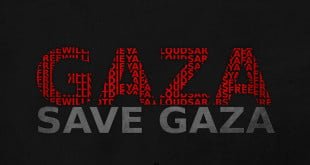Ebrahim Moosa – Cii News
A highly respected Saudi Arabian scholar has warned that the social and political status quo in the Kingdom is a powder keg waiting to explode.
Shaykh Salman al Oadah, who had been previously imprisoned for anti-regime activities, issued the frank portent in an open letter over the weekend.
Hinting at the trends of the Arab Spring, Dr. al Oadah signaled in the correspondence, depicted as a message of goodwill, that the Saudi leadership should not imagine that their country would forever be immune from change.
“People here are the same as they are everywhere else in the world. They have their ambitions, their demands, and their rights. They will not remain silent forever if some or all of these things are constantly denied to them.“
He observed that negative feelings had been accumulating for a long time in the Kingdom and fear of the authoritarian monarchy was slowly eroding. “When people cease being afraid, you can expect them to do anything, and if their anger gets to a critical point, then nothing will be able to placate them. Religious, political, and cultural symbols lose their value. (When tempers are high) the mob in the street takes control,” he warned.
A significant part of the scholar’s critique was directed at the shortcomings of the Saudi justice system which, according to Human Rights Watch(HRW), sees citizens routinely facing systematic violations of due process and fair trial rights, including arbitrary arrest and torture and ill-treatment in detention.
Secret police in the Kingdom are known to have detained without trial or access to lawyers – in many cases for years – thousands of persons suspected of sympathies for or involvement with armed groups, or for their peaceful political views.
Approximately 160 people were arrested by Saudi security forces earlier this month in Buraida, the provincial capital of the Qassim Province for unlawfully protesting outside that city’s Bureau of Investigation and Prosecution, according to the Saudi Press Agency.
The city has been the scene of several small-scale protests the past few months.
CNN reports that demonstrators have repeatedly gathered to demand the release of jailed relatives, including women and children, whom they say have been held for years without having been charged, tried or given access to lawyers.
Shaykh al Oadah said he had been briefed on circumstances where prisoners have suffered serious injustices including cases of death, physical and psychological abuse, obstruction of release orders, and ignoring of judicial verdicts.
“We have not been provided with any clarification of these matters,” he lamented.
He argued that there was an absence of clear regulations governing imprisonment in Saudi Arabia and current procedures were simply too arbitrary. Citing recent instances where effigies of Saudi officials were burned, al Oadah, also a member of the International Union for Muslim Scholars, said the circumstances should compel urgent introspection and decisive action from authorities.
“This file should be closed. No one should be left in detention except for those who have clear and legitimate evidence brought against them. This should be declared immediately.”
Diagnosing the wider corrective justice system, al Oadah called for transparency in arrests, investigations regarding judicial proceedings and the manner in which judges are influenced and appointed.
“It is unreasonable to have investigations and prosecutions carried out by the Interior Ministry, whereas in other countries these procedures are carried out independently or under the auspices of the Ministry of Justice.”
He elucidated the causes of societal distress within the Kingdom as financial and administrative corruption, unemployment, inadequate housing, poverty, substandard healthcare and education, and dim prospects for political reform.
He said many citizens feared anarchy and lawlessness, and their anxieties would only be allayed if they were to find a realistic program of reform which they would be allowed to participate in.
Cautioning against heavy-handed or violent responses from authorities, he stressed that the chance to correct affairs within the Kingdom may not present itself again.
“When revolutions are suppressed, they turn into armed conflicts. If they are ignored, they grow in reach and in breadth. The only solution is to take wise and timely decisions before violence is kindled.”
Currently the director of the Arabic edition of the website Islam Today, Shaykh al Oadah was imprisoned in 1994 by the Saudi government for anti-government activities. He was also one of the leaders of The Committee for the Defense of Legitimate Rights (CDLR), a Saudi dissident group created in 1993 athat constituted the first ever opposition organization in the Kingdom openly challenging the monarchy and accusing the government and senior ulama of not doing enough to protect the legitimate Islamic rights of the Muslims
In 1999, he emerged “rehabilitated” after a five year incarceration becoming one of the Kingdom’s most prominent religious spokespersons. He has cultivated a notable influence due to his use of multiple modes of communication including the internet and social media to educate Muslims in the Islamic sciences. Sheikh Al Ouda has a following of 2.5 million on Twitter, over half a million on Facebook and nearly that many views of his official videos on YouTube.
ebmoosa@ciibroadcasting.com
The full letter can be read HERE
 Jamiatul Ulama KZN Council of Muslim Theologians
Jamiatul Ulama KZN Council of Muslim Theologians



